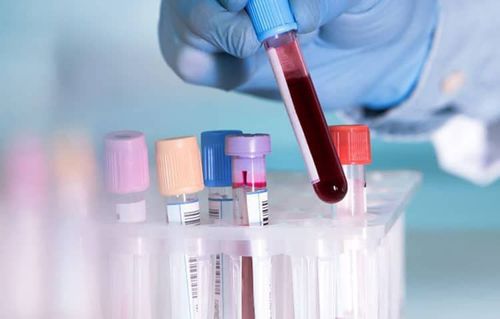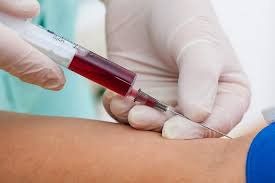This article was professionally consulted by Pham Thi Thuy Nhung, MSc, MD - Deputy Head of the Laboratory Department - Laboratory Department - Vinmec International General Hospital Hai Phong.
The complete blood count (CBC) test is considered one of the important tests for pregnant women. This is one of the most basic tests routinely performed to assess the overall health of pregnant women and thereby detect disorders such as infections, anemia, and blood diseases, etc.
1. What is a Complete Blood Count (CBC)?
The complete blood count (CBC) is a comprehensive blood test that provides crucial data on the quantity and characteristics of various blood cell types, including red blood cells, platelets, and white blood cells. A peripheral blood CBC helps clinicians identify the underlying causes of common pregnancy-related symptoms, such as weakness, fatigue, and bruising. These symptoms may indicate underlying conditions such as anemia, infections, or other hematological disorders.
The CBC is often included as part of routine prenatal care, offering valuable insights into the overall health and well-being of the pregnant individual.
Các dấu hiệu mang thai sớm không phải chỉ mỗi trễ kinh mà còn có rất nhiều dấu hiệu khác như xuất huyết âm đạo, ngực căng tức,… Điểm xem bạn biết được bao nhiêu dấu hiệu mang thai sớm thông qua bài trắc nghiệm này nhé!
Specifically, a Complete Blood Count (CBC) provides information on the following indices:
- White blood cell count (WBC): Increased WBC counts indicate bacterial infection and help assess infection or the body's response to cancer treatment.
- WBC differential: The percentage of different types of white blood cells (neutrophils, lymphocytes, monocytes, basophils, and eosinophils) provides important information about the immune system, assessing the risk of infection, allergic reactions to drugs or chemicals, or leukemia.
- Red blood cell count (RBC): Determines anemia (low RBC) or polycythemia (high RBC).
- Hematocrit (HCT) and Hemoglobin (Hgb): These are the two main tests for evaluating anemia or polycythemia.
- Red blood cell indices: Including mean corpuscular volume (MCV), mean corpuscular hemoglobin (MCH) and mean corpuscular hemoglobin concentration (MCHC), these help diagnose different types of anemia.
- Platelet count (thrombocytes): Assesses blood clotting and the risk of stroke, myocardial infarction, and blood clots…
- Mean platelet volume (MPV): Used with the platelet count to diagnose certain diseases.

2. Why is a Complete Blood Count (CBC) recommended during pregnancy?
Pregnant women may be prescribed a complete blood count (CBC) for several reasons:
- General health check-up: A CBC is part of a routine general health assessment.
Diagnosis of certain conditions: Doctors may recommend a CBC if the pregnant woman shows signs of fatigue, weakness, fever, infection, bruising, or bleeding. These symptoms may be due to anemia, infection, leukemia, or polycythemia… - Monitoring maternal and fetal health: If the pregnant woman has a history of blood disorders affecting blood cell counts, regular blood tests may be required for monitoring. Low hemoglobin or hematocrit (RBC) levels can indicate iron deficiency and anemia, hindering fetal development.
- Evaluating treatment methods: A CBC can also monitor a pregnant woman's health if she is taking medication affecting blood cell counts, helping check the body's response to certain drugs or radiation therapy.
Screening for high and low blood values before surgery (C-section): Ensuring the pregnant woman is healthy enough for surgery, without anemia or blood clotting disorders…
3. Procedure for a Complete Blood Count (CBC)
If the pregnant individual is undergoing only a CBC test, fasting or fluid restriction is typically not necessary. However, in most cases, doctors will use the same blood sample for other tests, some of which may require fasting. It is best to consult your doctor and follow their instructions regarding eating and drinking before the blood draw.
On the day of the blood draw, it is recommended that the patient wear a short-sleeved garment to facilitate venous access. The standard procedure for venipuncture for a CBC involves the following steps:
- Step 1: A tourniquet is applied to the arm to slow blood flow.
- Step 2: The venipuncture site is disinfected with alcohol.
- Step 3: A needle is inserted into the vein to draw blood. More than one needle may be needed.
- Step 4: The tourniquet is removed after sufficient blood is collected.
- Step 5: Gauze or cotton is applied to the puncture site to stop bleeding.
- Step 6: A bandage is placed over the puncture site.
4. Important information about CBC results

When interpreting complete blood count (CBC) results, it is important to consider several confounding factors that can influence the results:
- Pregnancy: Anemia is common during pregnancy.
- Exercise, stress, and smoking: White blood cell counts may decrease.
- Certain medications can cause low platelet counts, such as steroids, some antibiotics, thiazide diuretics, chemotherapy drugs, quinine, and meprobamate.
- Enlarged spleen: This can cause low platelet or white blood cell counts. An enlarged spleen may be a sign of certain cancers.
- High triglycerides: Can falsely elevate white blood cell and hemoglobin levels.
- Children generally have higher white blood cell counts than adults.
- Various medical conditions can cause increases or decreases in blood cell counts. Some require treatment, while others resolve on their own.
Before a CBC, pregnant women should understand these warnings and notes. Any questions or concerns should be addressed with their healthcare provider for further clarification and personalized guidance.
Please dial HOTLINE for more information or register for an appointment HERE. Download MyVinmec app to make appointments faster and to manage your bookings easily.
To arrange an appointment, please call HOTLINE or make your reservation directly HERE. You may also download the MyVinmec app to schedule appointments faster and manage your reservations more conveniently.









